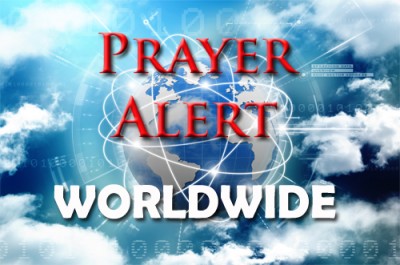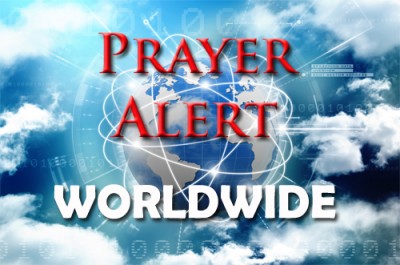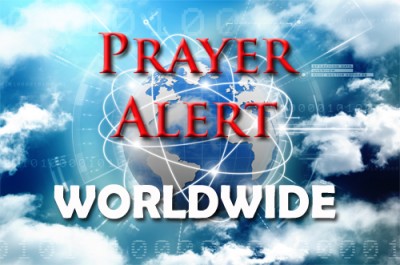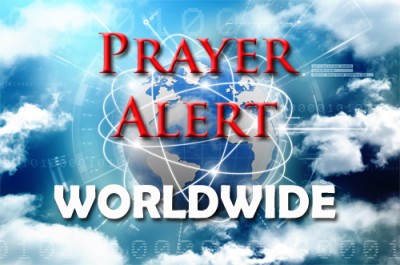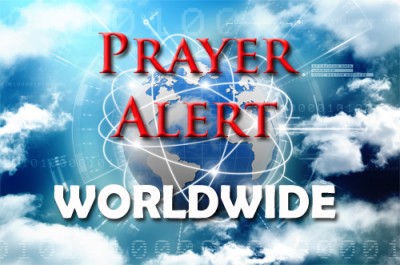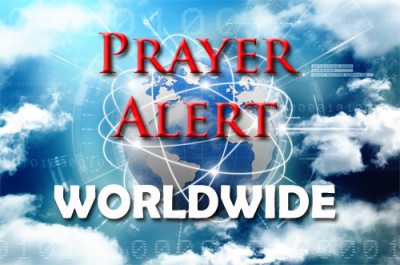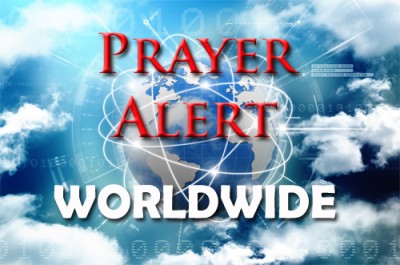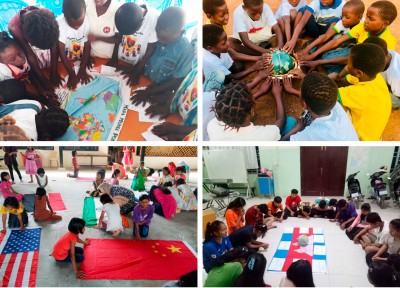Israel’s government has approved emergency regulations to enable the Shin Bet to perform mass surveillance of phones belonging to Israelis who contracted COVID-19. This is not to monitor quarantined people, but to track the movements of those found to be coronavirus carriers, to see with whom they interacted in the 14 days before they were diagnosed. Those who were contacted will receive SMS messages instructing them to enter home quarantine. Netanyahu announced the use of these digital counterterrorism measures, as one of several drastic steps to curb the spread of the virus that causes COVID-19. He acknowledged that the digital measures might interfere with people’s privacy, but he argued that Taiwan has successfully used similar means in order to stop the coronavirus spread. Public criticism and warnings by human rights groups mean that authorities must limit these measures to only thirty days.
Pray for the suffering
19 Mar 2020Pray for China, Italy, Spain, South Korea, and Iran, where thousands are suffering the loss of loved ones and millions suffer isolation from the outside world. Thank God for all the healthcare workers dedicated to care for the sick. May our political leaders not suffer the stress that can invade all those in decision-making positions over containing contamination. May they have Godly wisdom and a calm approach to all decisions. Many are suffering the fear of ‘going without’, causing items to disappear from shops’ shelves. Pray for this fear to be overridden with a spirit of sharing and concern for others. We are surrounded by negative news and social media. Without dismissing the seriousness of the coronavirus outbreak, let us remember to trust in the Lord with all our heart and not lean on our own understanding (Proverbs 3:5). For ten further prayer needs, click the ‘More’ button.
Iran: good and bad news
19 Mar 2020Iran has temporarily released tens of thousands of prisoners in recent weeks to stop the spread of coronavirus. Among these prisoners is British-Iranian charity worker Nazanin Zaghari-Ratcliffe She will be required to wear an ankle tag and remain within 300 metres of her parents' home. ‘The issue now is to make it permanent’, her husband Richard said. Pray for this to be the beginning of a permanent release for her. Meanwhile Iran has recorded the highest toll of deaths outside China and Italy. WHO said that 15% of Iran’s deaths were aged under 40. This is unprecedented, as across the world death rate the under 50’s is well below 1%. An Iranian pulmonologist said, ‘Realistically, at this point, the reported sick cases are 1 million.’ As a measure of Iran's desperation, it has requested a $5billion emergency loan from the International Monetary Fund - the first time they have sought western help for sixty years. See
Nigeria: displaced Christians refused aid
19 Mar 2020Among two million people who fled Islamic extremist violence in northern Nigeria are hundreds being denied help because they are Christians. Displaced Muslims receive government-built homes, land, and financial support for resettlement, but 347 Christians are denied help because of their faith. ‘We cannot watch them die because they are unwilling to turn to Islam for support. We want to start something, no matter how small’, said a Christian leader of a small organisation (name withheld for security reasons). He wants to free land on the organisation’s properties to build homes for Christian converts denied entry into camps for the displaced. Many are left to die on their own, as no food or shelter is made available to them. The leader said, ‘We had tried within our little resources to help these ones, but the rejected people without external help to survive are too many.’ The organisation is now seeking support and funding.
India: police implicated in Hindu riots
19 Mar 2020As the Hindu mob descended, Delhi market stalls were reduced to ashes, just 100 metres away from two police stations. The mobs came three times; desperate stallholders repeatedly ran to the police stations crying out for help, but the gates were locked from the inside. No help came. ‘How could they set fire to our market in such a horrific way, while it is so close to two police stations, and not be stopped?’ said a shopkeeper. ‘If I complain against the police I will face very serious trouble.’ The worst religious conflict to engulf Delhi in decades raises questions about the role that the police played. 75% of the 51 dead were Muslim, and many Muslims are still missing. The catalyst for the riots is widely acknowledged to be a BJP leader declaring that if the police did not clear the streets of objectors to the new citizenship law, his supporters would be ‘forced to hit the streets’.
Pastor Huang Lei leads a church in Wuhan. The coronavirus crisis makes it impossible for his church to have their usual gatherings, so they are meeting online. They are not just doing church, but being church. ‘First, we have more than 50 groups,’ he says. ‘Almost all the groups are meeting via the internet - praying, studying the Bible, sharing, witnessing, praising and worshipping. Of those 50, we have over 30 groups spending two hours every day to pray, worship, share and testify together. That’s far more frequent than our normal meetings. Of course, now we have more free time; everybody is staying at home, so that’s given us the chance to do this. But we usually have the group meeting weekly and now we’re doing this daily. Sometimes even more, so we are very grateful for that.’
USA: send asylum seekers to Mexico or Canada
19 Mar 2020Officials in Donald Trump‘s administration have been briefed on plans to block all asylum seekers and foreigners from entering the USA as a response to the coronavirus epidemic. All persons on the border with Mexico, apart from American citizens, will be turned back. The same policy is set to apply to the border with Canada. The plan could also see all illegal border crossers returned without due process, and asylum seekers will not be held in American immigration facilities. Anyone caught entering the US illegally will be transported to the nearest point of entry without detention by Border Patrol agents.
